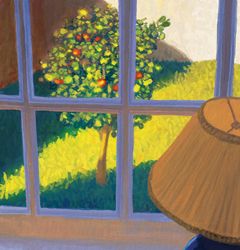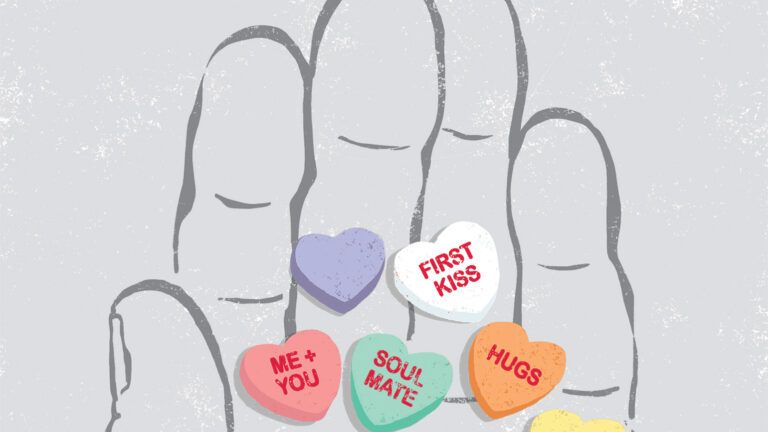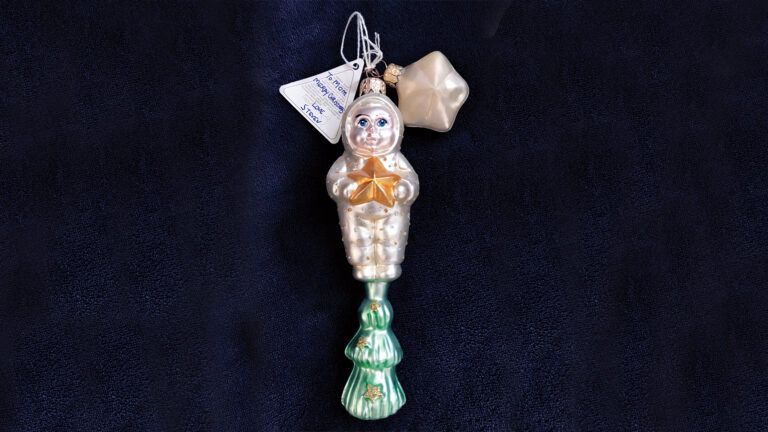I guess I’ve always been a daddy’s girl.
Dad ran the only funeral home in our small Minnesota town. Maybe it came from spending so much time comforting other folks, but from skinned knees to high-school heartbreaks, he knew just what to do or say to make me feel better.
It was no different after I grew up and started a family of my own. Dad was more than a grandfather to my two sons. He gave them support and advice from the time they started walking until they left home. When I went through my divorce, Dad was right there to ease the terrible hurt of that as well.
In the wake of the breakup, I decided to spread my wings, so I took a job in Arizona. The move was exciting—terrifying, too. I’d never lived so far from my family before.
The house I bought had looked homey enough when the realtor showed it to me, but once I moved in it felt all wrong—too big for a divorced woman whose kids had grown up and moved out on their own.
Dad and Mom came to Arizona to spend the holidays with me. It was my first Christmas without snow. That seemed to suit Dad fine. “You just haven’t done anything with the place yet,” Dad said. “It’ll be wonderful once you make it yours. And look at that yard! Plenty of room for some nice trees. Let’s go find a nursery and see what they recommend.”
We bought a baby palm tree, only two feet tall, and planted it in the backyard. Stepping back and wiping the dirt from my hands, I realized Dad was right. The place felt a bit more like home now.
I took root and flourished in my new home, just like that little tree. Each Christmas, Mom took a picture of Dad and me standing beside it, then beneath its thick fronds. With each visit came more plants and trees—hibiscus bushes, Mexican fan palms, and arborvitae soon crowded right up to the patio window. “Have the roses bloomed yet?” Dad would ask on the phone. “Make sure you’re giving them enough water.” Far as I was from home, Dad was keeping an eye out for me, just like always.
Yuma County, where I live, is one of the biggest citrus producers in the country. Orange orchards line the roads in every direction, and summer nights are full of their sweet, tangy scent. “I don’t know why it took me so long to get one of these,” Dad said one visit, unloading a baby orange tree from the back of the car. “This is an Arizona sweet orange. Before long you’ll be making fresh-squeezed orange juice every day.”
“How’s the new addition doing?” he asked a few weeks later. I almost didn’t have the heart to tell him. The little tree he’d planted had dried up and died.
On next year’s visit, Dad bought another orange tree, this time getting vitamins for the soil and advice on watering from the nursery. But once again, the leaves turned brown not long after he and Mom went home to Minnesota. Over the years, Dad planted six Arizona sweet orange trees in my yard. None of them lasted more than a few weeks. “I can’t understand what the problem is with my orange trees,” he said one Christmas Eve as we drove past an orchard just a half mile from my house. “What am I doing wrong?”
“Don’t worry, Dad,” I told him. “There’s always next year.”
Dad bought yet another orange tree when he came to visit in December 2000. Together Dad and I dug a hole in a different part of the backyard and planted it, but Dad’s heart wasn’t in it. He’d just turned 80, and for the first time, his age was catching up with him. He got tired easily, especially working outside, and complained about the cold, even on warm days.
That year’s orange tree went the way of all the rest. Before he and Mom had left for Minnesota its branches had drooped and its leaves had withered. All life was clearly gone from it. “I guess we should dig it up,” I said. Dad agreed. But every day we found another excuse not to. I got home from work too late, or Dad was too tired. Mom and Dad drove off at the end of January, the sad little tree still in the ground.
Two weeks later, I got a phone call from Mom. “Susan,” she said, her voice shaky, “your father is sick. Very sick. I think you need to come home.” Dad had been diagnosed with granulocytic sarcoma, a rare and deadly cancer. It was at an advanced stage and he was fading fast, Mom said.
By the time I got to Minnesota, Dad was already in a coma. There was nothing I could do but sit by his bed in the hospital, holding his hand and praying through that long day and into the night. Dad passed away peacefully the next morning. This was heartbreak like I’d never known before. Dad would have found just the right words to help me, I thought, like he always did. The only person who could comfort me was gone.
I flew back to Arizona a few weeks after the funeral. But as soon as I walked through the door of my house, it felt as cold and lonely as it had the day I moved in. Lord, who will comfort me now? I asked. I took my coffee out onto the back patio the next morning. The first thing my eye fell on was Dad’s last orange tree. It’s time I dug that up, I thought. But sad as it was, that little tree reminded me too much of Dad. I couldn’t bring myself to uproot it, not yet.
Slowly, mercifully, the routines of daily life took over. Sometimes I’d notice a new blossom in the backyard and catch myself making a mental note to tell Dad about it. The pain would surge up again for a moment, but I got through it. Little by little, I was moving forward.
Then one warm May evening, I was planting some bulbs in a patch of the yard near Dad’s orange tree. It’s really time I got rid of that, I thought. I’m ready. I took Dad’s shovel from the tool shed and went over to the tree. Just as I was about to begin digging, I noticed something straining toward the sun in the grass beside it. A thin, green sapling, less then a foot tall, but already sprouting tiny, pale-green leaves. Carefully, I took one of the leaves, rubbed it between my thumb and forefinger, and held it to my nose. The smell-so tangy, so distinct.
Dad was gone. But the comfort I needed was as close as the leaf in my hand.




